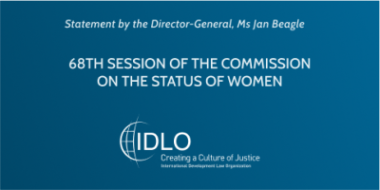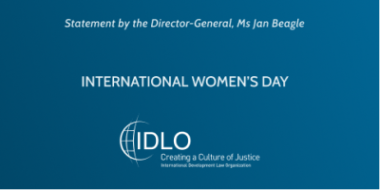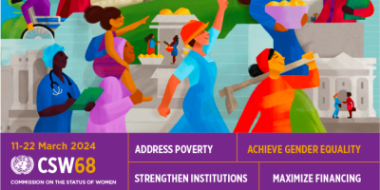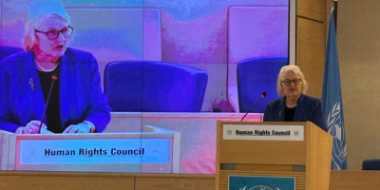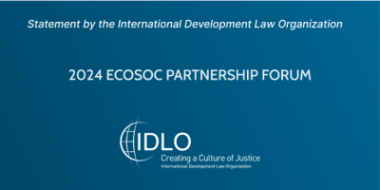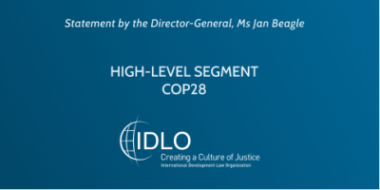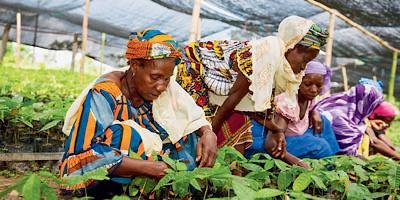
This blog post is co-authored by Dr. Ilaria Bottigliero, Director, Policy, Research and Learning, International Development Law Organization (IDLO) and Françoise Trine, Senior Food Security Officer, Secretariat of the Committee on World Food Security (CFS).
In societies where there is a high degree of gender inequality, there is also a significantly higher proportion of undernourishment among women and girls.
In order to effectively tackle food insecurity, it is necessary to address gender inequality more broadly, particularly the discriminatory policies, laws and social norms that prevent women and girls from participating in society on an equal basis.
The 2030 Agenda for Sustainable Development and a growing number of other international policy and legal instruments emphasize the mutually reinforcing relationship between gender equality and the realization of women’s rights to food, land, social security and work.
Barriers to women’s equal rights to food security
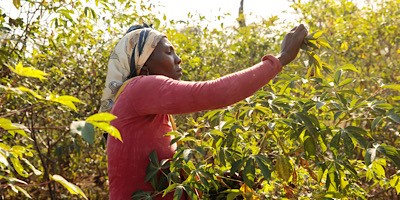 The translation of international and national policies and legal guarantees into effective action to ensure women’s equal rights is, however, subject to a significant number of challenges.
The translation of international and national policies and legal guarantees into effective action to ensure women’s equal rights is, however, subject to a significant number of challenges.
Many of these difficulties are connected to institutional and structural shortcomings, including an absence of gender-responsive laws and policies and the lack of a holistic and participatory approach to issues of gender equality and food security, which result in ineffective, inconsistent and uncoordinated policies and legislation across different sectors.
Legal and policy frameworks on gender equality and food security may be inadequate in a number of respects: laws and policies may directly or indirectly discriminate against women; they may be defined and implemented without meaningful participation by diverse groups of women; and key elements of the right to food and other interdependent human rights, such as freedom of association and the right to work, may not be explicitly protected within national constitutions and implementing legislation or specified as policy priorities.
In many countries, a lack of attention to the discriminatory impact of policies and formal and informal laws on women’s equal rights to food and nutrition, work, social protection, land and other productive resources, results in a failure to ensure that their human rights are respected, protected and fulfilled in practice.
In addition to substantive and procedural gaps and bias, other barriers to implementation also affect women’s equal rights to food security. These include an absence of technical and financial resources for the development and monitoring of policies and laws, and the failure to consider the gender dimensions of existing laws and policies relating to agriculture, trade, land and the family.
Solutions
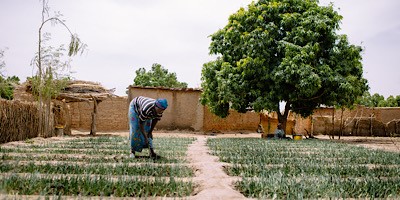 A focused IDLO research report examines the key challenges that affect women’s food security and land rights from a rule of law perspective – inadequate laws and policies, implementation failures and barriers to accessing justice.
A focused IDLO research report examines the key challenges that affect women’s food security and land rights from a rule of law perspective – inadequate laws and policies, implementation failures and barriers to accessing justice.
Specific rule of law interventions within each of the different dimensions of food security can make a decisive contribution to the effective implementation of gender-sensitive policies and law, while empowering women to become equal partners in decision-making.
Secure land rights for women are a key part of the equation in realizing the right to adequate food and achieving food security, as well as gender equality. In Tanzania, for example, women earned nearly four times more in areas where they have control over land. While women represent about 43 per cent of all those working in agriculture, they account for only one eighth of total land ownership in developing countries. For land rights to be effective and transformative for women, they must be supported by a coordinated and coherent legal and policy framework.
Later this year, the Committee on World Food Security (CFS) will begin developing voluntary guidelines to provide policy guidance to countries and other actors on promoting gender equality and women’s empowerment in the context of food security and nutrition, building on earlier policy recommendations. By paying particular attention to the elimination of discriminatory laws, these voluntary guidelines can contribute to global efforts to eradicate hunger and malnutrition and enhance justice for women across the globe.
The rule of law provides predictability, clarity and legality, including due process guarantees, which can help make land rights and other aspects of food security for women more sustainable. Rights to own and use land are often a source of conflict, and rule of law programming can contribute to the peaceful resolution of disputes, leading to greater political and socio-economic stability.
Rule of law interventions can make a decisive contribution to the effective implementation of gender-sensitive policies and laws on food security and land rights, while empowering women to become equal partners in decision making within the household, in the community and in economic, social and political institutions.
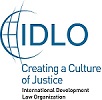 |
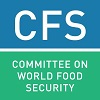 |
International Development Law Organization
The International Development Law Organization (IDLO) is the only intergovernmental organization exclusively devoted to promoting the rule of law. IDLO works to enable governments and empower people to reform laws and strengthen institutions to promote peace, justice, sustainable development and economic opportunity. Its programs, research and policy advocacy cover the spectrum of rule of law from peace and institution building to social development and economic recovery in countries emerging from conflict and striving towards democracy.
Dr. Ilaria Bottigliero is the Director of Policy, Research and Learning at IDLO. Her responsibilities include oversight of policy, research and gender issues. Prior to joining IDLO, Dr. Bottigliero was Lecturer and Researcher at the Raoul Wallenberg Institute of Human Rights and Humanitarian Law in Lund, Sweden, and at the Lund University Faculty of Law. Dr. Bottigliero was also Lecturer at the Chinese University of Hong Kong and at the University of Hong Kong Faculty of Law, teaching a variety of international law and gender courses to graduate students. Dr. Bottigliero has lectured extensively in Europe and Asia on various human rights and international criminal justice topics. She is the author of “Redress for Victims of Crimes under International Law”, as well as several scholarly publications on victims’ rights, international criminal justice and gender issues. Dr. Bottigliero is the recipient of the 2010 Worldwide Universities Network International and Comparative Criminal Justice Network Fellowship.
Committee on World Food Security
The Committee on World Food Security (CFS) is the only intergovernmental and multistakeholder platform within the UN system dedicated to food security and nutrition. It plays a vital role in promoting policies to improve food security and nutrition. CFS recommendations have an unrivalled level of international legitimacy and authority as they are negotiated and agreed by a wide membership of 126 Member States with the inclusive participation of UN agencies and bodies, civil society, international agricultural research system, international and regional financial institutions, private sector and philanthropic institutions.
Françoise Trine is Senior Food Security Officer in the Secretariat of the Committee on World Food Security (CFS). She has been working with the Food and Agriculture Organization of the United Nations (FAO) for 20 years to coordinate FAO programs and projects on food security in Central Asia, Southern Cauras, Western Europe and East, Southeast Asia and Africa. She has previously worked with several United Nations organizations (WFP, IFAD and UNICEF), the World Bank, non-governmental organizations and the private sector. She holds a Master's degree in Research from the Institute for Development Studies at the University of Sussex (United Kingdom) and an engineering degree in Earth Sciences from the University of Brussels, in Belgium.
Image credits (first to last): © Flickr_Nestlé, Flickr_UN Women/Ryan Brown, Flickr_Center for International Forestry Research


